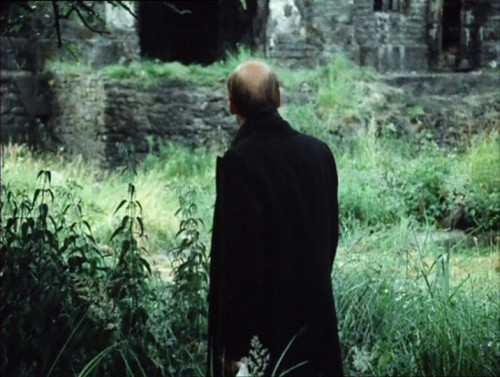 Adrian Ivakhiv, Associate Professor of Environmental Studies at the University of Vermont, maintains the excellent blog immanence, where he posts regularly on “the Form, Flesh, and Flow of the World : Ecoculture, Geophilosophy, Mediapolitics” (as he puts it in the blog’s byline).
Adrian Ivakhiv, Associate Professor of Environmental Studies at the University of Vermont, maintains the excellent blog immanence, where he posts regularly on “the Form, Flesh, and Flow of the World : Ecoculture, Geophilosophy, Mediapolitics” (as he puts it in the blog’s byline).
Recently, he linked to a new article of his in the open-access online journal Film-Philosophy (published by the great Open Humanities Press), in a special issue on “Phenomenology and Psychoanalysis.” Here is the abstract of Ivakhiv’s paper, which is certainly worth reading in full:
The Anthrobiogeomorphic Machine: Stalking the Zone of Cinema
This article proposes an ecophilosophy of the cinema. It builds on Martin Heidegger’s articulation of art as ‘world-disclosing,’ and on a Whiteheadian and Deleuzian understanding of the universe as a lively and eventful place in which subjects and objects are persistently coming into being, jointly constituted in the process of their becoming. Accordingly, it proposes that cinema be considered a machine that produces or discloses worlds. These worlds are, at once, anthropomorphic, geomorphic, and biomorphic, with each of these registers mapping onto the ‘three ecologies,’ in Felix Guattari’s terms, that make up the relational ontology of the world: the social, the material, and the mental or perceptual. Through an analysis of Andrei Tarkovsky’s Stalker (1979), I suggest that cinema ‘stalks’ the world, and that our appreciation of its potentials should similarly involve a kind of ‘stalking’ of its effects in the material, social, and perceptual dimensions of the world from which cinema emerges and to which it returns.
Keywords:
Film theory; film-worlds; ecocriticism; ecologies; Tarkovsky
Beyond this paper, Ivakhiv is working on a book called Ecologies of the Moving Image, which I very much anticipate reading. Indeed, in many respects, Ivakhiv seems a kindred spirit of sorts in his process-relational philosophical orientation and his endeavor to formulate a non-anthropocentric philosophy of film. With his notion that the cinema is one of the places “in which subjects and objects are persistently coming into being, jointly constituted in the process of their becoming,” Ivakhiv’s views seem largely apposite with my own film-theoretical project, which, as I summarized (in German) recently, seeks a “rapprochement between the conflicting human and nonhuman agencies inhabiting [Frankenstein] films” and the cinema in general. As I outline it in Postnaturalism: Frankenstein, Film, and the Anthropotechnical Interface, this “rapprochement […] consists […] of a recognition of the mutual articulation of experience by human and nonhuman technical agencies, whereby the affective and embodied experience of anthropotechnical transitionality is not arrested and subjugated to human dominance, but approached experimentally as a joint production of our postnatural future” (24). Ivakhiv’s proposal “that cinema be considered a machine that produces or discloses worlds” seems, in my opinion, to point in the same – experimental and postphenomenological – direction.
0 thoughts on “Adrian Ivakhiv’s ecocritical film-philosophy”